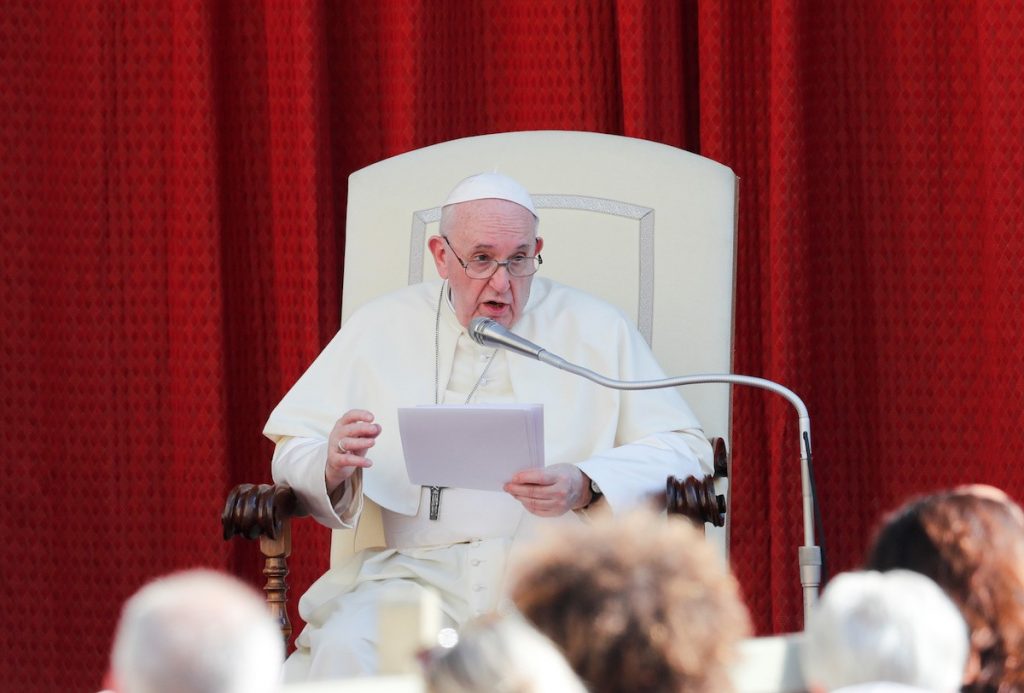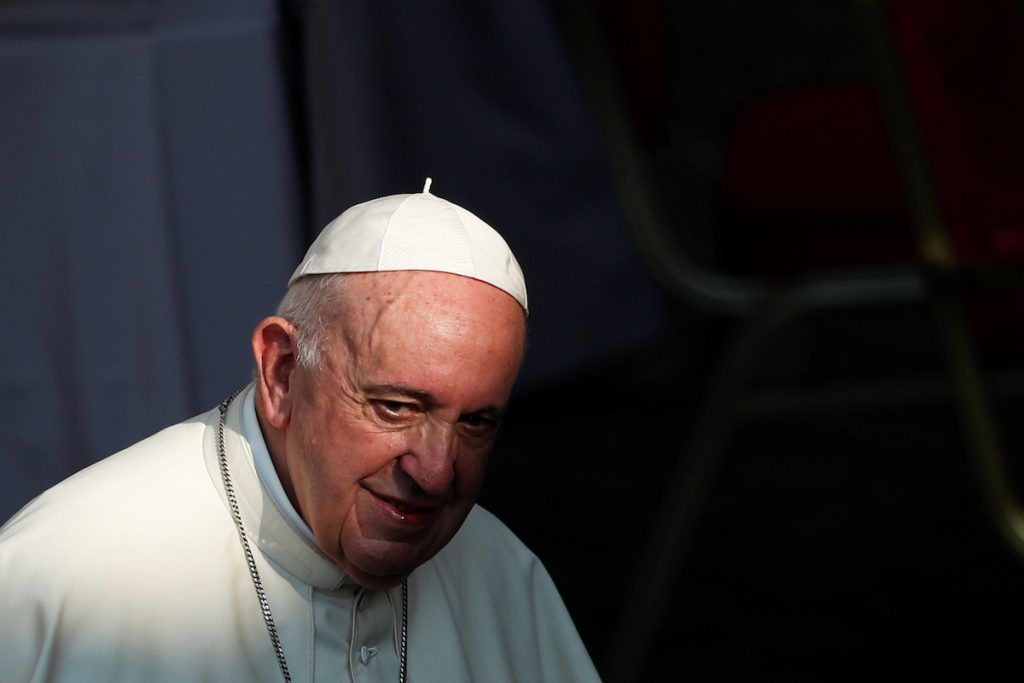
Pope Francis issued a call this week urging everyone to take the path of “subsidiarity,” a principle that allows everyone to participate in the “healing” of society.
Subsidiarity is a principle of social organization that holds that social and political issues should be dealt with at the most immediate level that is consistent with their resolution.
The pontiff stressed the need for the collaboration of everyone in society, including the governments and private institutions, to unite assume responsibility in the “process of healing” society.
In his message during his general audience on Sept. 23, the pope said everyone “should have the adequate resources” to be able to participate in the healing and regeneration of the world.
He said that it is the responsibility of those on top to help every person or community “to provide the necessary resources to progress.”
The pontiff noted that due to the coronavirus pandemic, people, families, and economic entities are in serious trouble and are in need of “appropriate interventions.”
Pope Francis said leaders “must respect and promote the intermediate or lower levels … even of the Church,” whose contribution to society is “decisive.”
The pope said the proper approach of empowering the least in society and allowing them to participate in the healing process is not to tell them what to do but to let them speak.
“The first step is to allow the poor to tell you how they live, what they need…. Let everyone speak! And this is how the principle of subsidiarity works,” he said.
“We cannot leave out the participation of the people; their wisdom; the wisdom of the humbler groups cannot be set aside,” he added.

The pontiff said it is unfortunate that in today’s world, “injustice happens often in those places where huge economic and geopolitical interests are concentrated.”
He noted that instead of listening to people and understanding their condition, governments and nations listen to big corporations and financial institutions.
“The largest financial companies are listened to rather than the people or the ones who really move the economy. Multinational companies are listened to more than social movements,” said the pope.
“Putting it in everyday language, they listen more to the powerful than to the weak and this is not the way, it is not the human way, it is not the way that Jesus taught us, it is not how the principle of subsidiarity is implemented,” he said.
The pope said this process hinders people to be “agents in their own redemption.”
He stressed the need to gather the wisdom of the people in resolving problems including how the world would emerge from the pandemic.
Pope Francis noted that in the midst of the global health crisis, the world tends to listen to large pharmaceutical companies rather than healthcare workers in hospitals or in refugee camps.
“This is not a good path. Everyone should be listened to, those who are at the top and those who are at the bottom, everyone,” he said.
The principle of subsidiarity, the pope said, would allow everyone “to assume his or her own role for the healing and destiny of society.”
Implementing this principle will give “hope in a healthier and more just future,” he said.
“To emerge from the crisis means to change, and true change to which every contributes, all the persons that form a people,” he said.
“All the professions, all of them. And everything together, everyone in the community. If everyone is not contributing the result will be negative,” added the pope.
Pope Francis stressed that “solidarity needs subsidiarity,” adding that “there is no true solidarity without social participation, without the contribution of intermediary bodies.”
Solidarity with subsidiarity “helps to prevent and to correct certain negative aspects of globalization and the actions of states,” he said.
Pope Francis urged everyone to participate in building “a future where the local and global dimensions mutually enrich each other.”
“Let’s not try to reconstruct the past, the past is the past, let’s look forward to new things,” he said.
Source: Licas Philippines
0 Comments